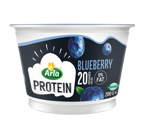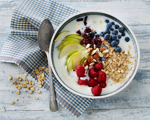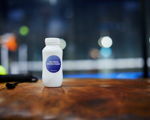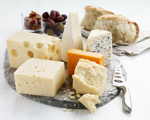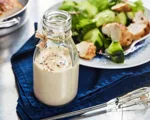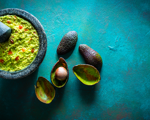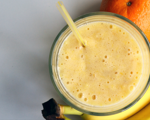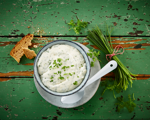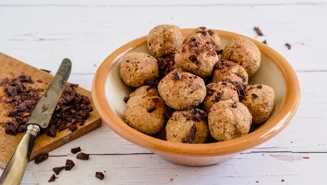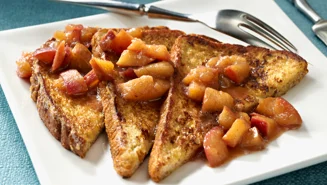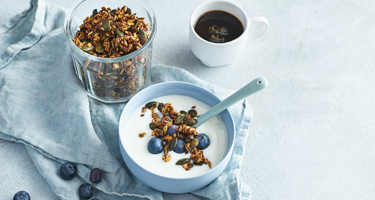
Yoghurt is a popular staple in many households and frequently makes its way to our breakfast tables. Due to its versatility, it has secured a permanent place in fridges around the globe. It is not only enjoyed plain but also stars in numerous recipes. From traditional breakfast bowls brimming with fresh fruit and granola to savoury sauces and marinades, yoghurt's adaptability makes it an ingredient of choice for many.
The primary type of protein in yoghurt is casein, although it also contains whey. Both of these are so-called complete proteins.
Is yoghurt high in protein?
The exact amount of protein in yoghurt varies depending on the type, brand, and variant. There are many types of yoghurt on the market, including, for example, Greek yoghurt, skyr, and kefir. Some have a protein content that makes them high-protein yoghurts, while others do not.
For food to be labelled high-protein, at least 20 % of the total energy value must come from protein. So, if you add anything, for example, granola, berries, or syrup, to your yoghurt, the nutritional value changes and the protein content will rise or fall depending on the additional foods.
Protein content by yoghurt type
- In general, a plain whole milk yoghurt contains 3.8 grams of protein per 100 grams, equalling 27 % of the total energy value.
- A plain, low-fat yoghurt (1.5 % fat) contains 4.1 grams of protein per 100 grams, which equals 33 % of the total energy value.
- Lastly, a plain, fat-free (0.1 % fat) yoghurt contains 4.3 grams of protein per 100 grams, which makes up 45 % of the total energy value.
- Greek yoghurt is made by straining regular yoghurt to remove the whey, resulting in a thicker, creamier consistency. Because of this straining process, the protein content is usually higher than in regular yoghurt, namely 9.2 grams per 100 grams, which equals 52.3 % of the total energy value. These values are for a plain Greek yoghurt with 2 % fat. If you choose a plain one with 10 % fat, it contains about 5 grams of protein per 100 grams, which makes up 17.5 % of the total energy value.
- Skyr is an Icelandic-style dairy product that resembles yoghurt with a similar taste but a slightly thicker texture. Similar to Greek yoghurt, skyr is made by straining the whey, which increases the protein concentration. Depending on the specific product, skyr usually contains about 11 grams of protein per 100 grams, and protein constitutes 62.3 % of the total energy value. Read more about protein in skyr or check out our Skyr breakfast bowl recipes.
If this article about protein in yoghurt sparked your curiosity, you should have a look at high-protein foods and protein in common foods to learn more about the topic.
Related Articles
Looking to learn about protein content in different foods? Explore our comprehensive guides:
